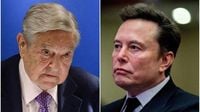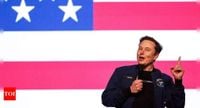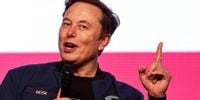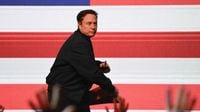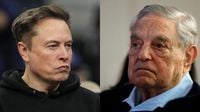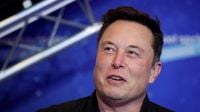Elon Musk, the CEO of Tesla and SpaceX, made headlines once again during a town hall event in Green Bay, Wisconsin, on March 30, 2025, when he took a jab at billionaire George Soros after being interrupted by a protester. Musk quipped, "It was inevitable that at least a few Soros operatives would be in the audience. Give my regards to George! Say hi to George Soros for me!" His remarks were met with chants of "USA, USA" from the crowd, which Musk enthusiastically echoed.
This latest incident is part of Musk's ongoing critique of Soros, who has long been a target of right-wing conspiracy theories and criticism for his financial support of progressive causes. Musk has previously accused Soros of possessing a "hatred for humanity" and has openly criticized the former president Joe Biden's decision to award Soros the Presidential Medal of Freedom, calling it a "travesty."
At the Wisconsin town hall, Musk was discussing the significant death threats he has received since taking on the role of head of DOGE, as well as two assassination attempts on former President Donald Trump during the 2024 campaign trail. Musk stated, "There were quite a few death threats, I have to tell you. My security team said it’s actually gone down from 18,000 to 17,000. But you can see how crazy some of these people are—look at the two people who tried to assassinate President Trump; they both almost succeeded." This statement highlights the intense political climate and the risks faced by prominent public figures.
The town hall event was strategically timed just days before Wisconsin's critical Supreme Court election, which Musk described as pivotal for Trump's agenda and "the future of civilization." He emphasized the stakes involved, stating, "The Supreme Court can redraw the districts, which could result in the House shifting to a Democratic majority. If that happens, they will try to block all the reforms we are working on for you, the American people." Musk's political action committees, America PAC and Building America's Future, have reportedly spent over $20 million supporting the Republican candidate, former state Attorney General Brad Schimel, while Soros has contributed $1 million to the Democratic nominee, Susan Crawford.
During the rally, Musk also handed out $1 million checks to two Wisconsin voters, declaring them representatives of his political group. He has previously employed similar tactics, offering financial incentives to voters who signed petitions supporting conservative causes. This approach has drawn comparisons to Soros's political contributions, with critics arguing that Musk is engaging in the same practices he accuses Soros of.
Moreover, Musk's remarks about Soros come amidst a backdrop of increasing tensions between the two billionaires. In previous statements, Musk has linked Soros to protests against Tesla, suggesting that Soros and other Democratic-affiliated organizations are behind the disruptions faced by his company. In January, Musk criticized the Biden administration for honoring Soros, stating bluntly on social media, "A travesty that Biden is giving Soros the Medal of Freedom."
The ongoing feud reflects a broader cultural and political divide in the United States, where figures like Musk and Soros symbolize contrasting ideologies. Musk's support for Trump and his aggressive political fundraising efforts have positioned him as a significant player in the Republican landscape, while Soros remains a prominent figure in Democratic circles, often vilified by conservatives.
As the Wisconsin Supreme Court election approaches, the ideological balance of the court is at stake, with major implications for issues like abortion rights, congressional redistricting, and voting rules—all critical topics for both parties as they look toward the 2026 midterms and the 2028 presidential election.
While Musk's comments elicited cheers from his supporters, they also highlight the contentious nature of political discourse in America today. As both billionaires continue to wield significant influence over political outcomes, their rivalry will likely persist, with each side accusing the other of attempting to manipulate the democratic process.
In the end, Musk's quip at the Wisconsin town hall is emblematic of a larger narrative—one where billionaires play a pivotal role in shaping political landscapes, often at the expense of civil discourse. As the election draws nearer, the stakes are higher than ever, and the public's attention remains firmly fixed on the actions of these powerful figures.
